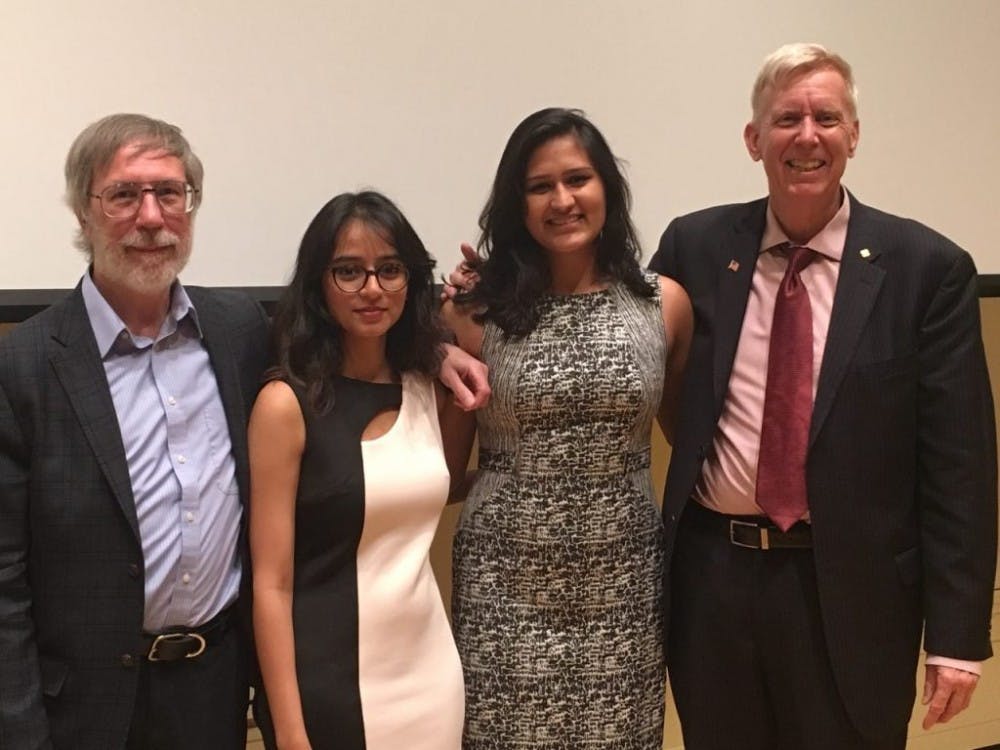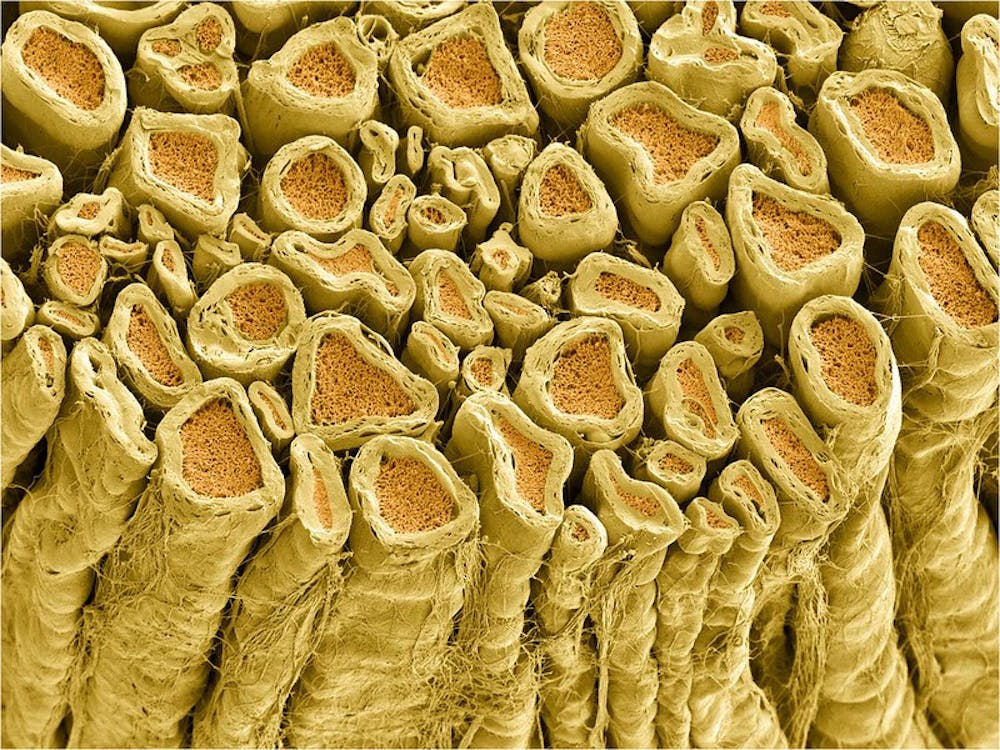Continuing this year’s theme “Unconventional Medicine,” Conversations in Medicine (CiM) presented the symposium’s final talk given by space physician and flight surgeon Dr. Jonathan Clark on April 17.
Conversations in Medicine is a year-round symposium of guest-speaker seminars co-organized by the Johns Hopkins Women’s Pre-Health Leadership Society (WPHLS) and Alpha Epsilon Delta (AED), the pre-medical honors society.
WPHLS members, AED members and other students attended the last CiM of the year. The topic of the evening’s presentation was on space medicine.
After 26 years of active service with the United States Navy, Clark became a six-time Space Shuttle crew surgeon at NASA. He was also a member of survival investigation teams and project review boards during his time at NASA, working tirelessly to create new protocols to benefit and protect future astronauts and aviators.
Currently, he is a researcher, an assistant professor at Baylor College of Medicine, space medicine adviser for the National Space Biomedical Research Institute (NSBRI) and medical director of the Red Bull Statos team, focusing his interests on the effects of extreme environments on neurological health and crew survival in space. His goal is to improve the safety and reduce the risk of space exploration.
Taking place three times a semester, CiM hosts a variety of health professionals, who come to Homewood campus to share their wisdom with Hopkins undergraduates.
Many audience members aspire to pursue a career in medicine, while others, who are not preparing for medical school, are simply interested in the presentation topic.
In his presentation, Clark touched upon the history of human spaceflight, from hot air balloons to the first airplanes and space missions. Then he shared with the group his own experiences.
Sophomore Ruchita Kothari, CiM chair of WPHLS, discussed how the organizing committee had come up with the theme of “Unconventional Medicine.”
“The goal of this year’s CiM Symposium was to attract all bodies of students at Hopkins, not just the pre-med students,” Kothari said.
This year, CiM’s focuses on the interdisciplinary aspects of medicine, appealing to students in a multitude of fields.
“I’ve always been amazed at the wide array of careers in medicine and the thought of focusing on some unheard-of careers, like space medicine, was intriguing,” Kothari said.
The theme “Unconventional Medicine” gave CiM the chance to feature the stories of healthcare professionals who work in very specific and oftentimes rare subspecialties in the medical field.
So far, CiM has hosted a medical patent lawyer, a law enforcement medicine physician, a medical illustrator, a transport medicine physician and more.
“CiM gives a different insight to students on medicine,” Kothari said. “It doesn’t focus on the process of getting into medical school but instead on the lifelong journey that is medicine. It is so universal and connects so many people and fields.”
Kothari admits that planning CiMs is often challenging due to the speakers’ busy schedules.
However, she finds the job rewarding because there are always so many important lessons to learn.
Her most valuable takeaway thus far has been that everyone should follow their passions, because students can never plan enough to be prepared for what is to come after college.
She noticed how many of the speakers mentioned how they intended to be traditional physicians, but when they pursued their interests, unexpected opportunities presented themselves and led them to other exciting careers.
With their own unique twists on their careers, these medical professionals combined their love for medicine with their interests in other fields, proving that hard work and passion can lead to success even in unconventional paths.
Sai Talluru, WPHLS president and member of the CiM board, felt inspired by Clark’s talk and the symposium’s other speakers.
“The CiM speakers this year have been engaging, diverse and inspiring as they shared the passion they carry for their work,” Talluru said. “Their journeys and current projects are a testament to the lifetime of learning a career in medicine entails, reinforcing my own interest.”
















Please note All comments are eligible for publication in The News-Letter.